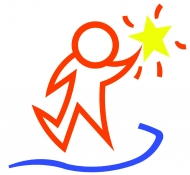Georgia Winter Institute Brings Together Disability Community
 Every January, members of the disability community gather for the Georgia Winter Institute (GWI) to network, rejuvenate and continue working to build inclusive, person-centered communities.
Every January, members of the disability community gather for the Georgia Winter Institute (GWI) to network, rejuvenate and continue working to build inclusive, person-centered communities.
These individuals are connected to the purpose of building inclusive communities, and GWI allows everyone to come together to learn new strategies, connect with one another and share ideas,” said Daniel Crimmins, executive director of the Center for Leadership in Disability (CLD) at Georgia State University.
The annual event, held in Columbus, GA, covers four strands that are current topics of interest to the disability community. This year, GWI covered Employment, Personal Futures Planning, Inclusive Faith-Based Communities and Community Building. Various speakers such as Reverend Bill Gaventa, Robin Higa and DeAmon Harges presented on employment and community building. The strands are identified from the current state of the disability community. Where is it making progress or where does it need reinforcement are all questions asked when identifying the goals of the retreat.
“A community is a place where we can exchange ideas,” said Eric Jacobson, Georgia Council on Developmental Disabilities (GCDD) executive director. “At GWI, we get to meet our colleagues and learn how we all can work together to continue building inclusive, integrated communities for all Georgians with disabilities. We take away something every year to strengthen GCDD’s Real Communities initiative.”
The group also models what they are trying to achieve by hosting community luncheons to increase interaction and gain perspectives on inclusion. “Our goal is to build inclusive communities that embrace people with disabilities,” said Stacey Ramirez, director of individual and family supports at CLD. “At the retreat, we want to create an atmosphere where they can see themselves in the community and these luncheons encourage conversations and generate ideas.”
GWI attendees also met with sad news upon learning of the execution of Warren Lee Hill. Unable to provide the burden of proof for an intellectual disability, Hill was denied a stay of execution. A candlelight vigil was held in his memory.
“We think it is very important for us to partner with CLD to provide support to the GWI each year because its goals so closely align with our mission and values,” said GCDD Executive Director Eric Jacobson. “This diverse gathering of community-minded individuals with and without disabilities, representatives from state agencies and service providers, form a collective resource that brings together information and activities to foster development of values-based, person-centered practices that encourage inclusive communities.”
At the GWI, GCDD’s Jacobson led a one day preconference workshop designed to assist participants to understand the power of valued social roles in an effort to counter act some of the effects of devaluation of people who have been marginalized and how to create supports to help them have full, inclusive lives.
Georgia Winter Institute is presented by CLD with support from GCDD. The next retreat is scheduled for Jan. 24-27, 2016, Columbus, GA.
GEORGIA WINTER INSTITUTE 2015 STRANDS
Community Building
The benefits of community building make towns greater by creating stronger neighborhoods and more active and involved populations of people with disabilities. These relationships empower and create opportunities for members of communities who are often marginalized and forgotten.
Futures Planning
Person-centered planning is a process that empowers people with and without disabilities to know the possibilities of their goals can become the realities of their future. Using people’s gifts and talents puts them in charge of defining the direction for their lives leading to greater inclusion as valued members of their communities.
Employment/Financial Independence
This strand promotes job carving, career exploration and microenterprises. The gifts and abilities of people in our communities are varied and they often require an entrepreneurial spirit to translate into career possibilities.
Inclusive Faith-Based Communities
For many people with disabilities and their families, faith communities can be a powerful source of natural community support and connection, as well as a doorway to other important outcomes in the areas of relationships, work, community living, recreation and service.
Tags: Making a Difference
